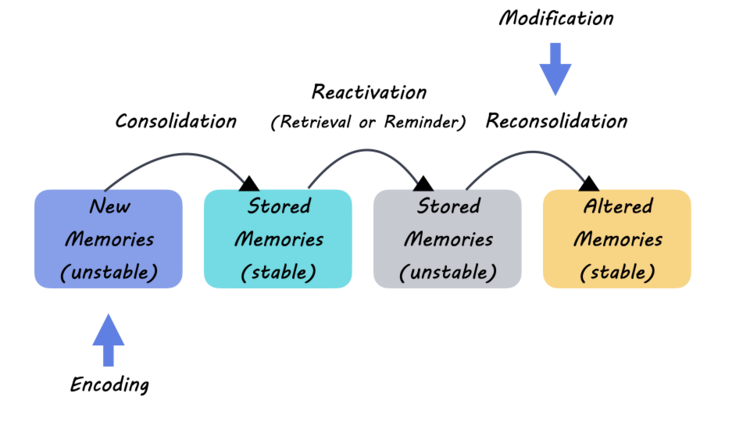Citrus depression risk, particularly linked to the consumption of fruits like oranges, is gaining attention for its potential impact on mental health. Recent studies suggest that eating an orange daily could reduce the risk of depression by up to 20%, highlighting the health benefits of citrus. This connection may stem from the boost in beneficial gut bacteria, specifically Faecalibacterium prausnitzii, which has been shown to play a significant role in producing mood-enhancing neurotransmitters like serotonin and dopamine. As researchers explore the intricacies of the gut-brain connection, they uncover more reasons to integrate citrus into our diets—not just for their refreshing taste but also for their ability to improve mental health. Thus, dietary choices, especially involving citrus fruits, could serve as a proactive measure against depression, emphasizing the importance of nutrition in our overall well-being.
The relationship between citrus and mental wellness is emerging as a vital topic in discussions about diet and depression. Oranges and other citrus fruits are not only celebrated for their vitamin C content but may also influence our emotional health significantly. By encouraging the growth of specific gut bacteria, these fruits could be critical players in enhancing mood and reducing the likelihood of depressive symptoms. This intersection of dietary choices and psychological health opens new avenues for preventative strategies against mental health issues, emphasizing how particular foods can fortify our emotional resilience. In essence, the notion that our diet can directly affect our state of mind is invaluable, and citrus fruits are at the forefront of this conversation.
The Gut-Brain Connection: How Citrus Affects Mental Health
The gut-brain connection refers to the intricate relationship between our gastrointestinal system and our brain. This connection can influence our overall mental health, including moods and emotions. Recent studies have indicated that the consumption of citrus fruits can play a pivotal role in this connection, primarily through the promotion of specific gut bacteria such as Faecalibacterium prausnitzii (F. prausnitzii). This strain of bacteria not only helps in digesting food but also supports the production of neurotransmitters like serotonin and dopamine, known to uplift mood and enhance mental well-being.
When we consume citrus fruits like oranges, we are not only enjoying their refreshing taste but also reaping the benefits of their nutrients. Studies have shown that regular citrus intake can elevate levels of F. prausnitzii in the gut, creating a more favorable environment for mental health. This highlights the crucial role of diet in managing emotional well-being, supporting the idea that ‘you are what you eat.’ As more evidence emerges regarding the gut-brain connection, integrating citrus into our diet may become a simple yet effective measure for improving mental health.
Citrus Depression Risk: A Promising Preventative Measure
Research has shown that the consumption of citrus can significantly lower depression risk, with studies indicating a potential 20% reduction for those who eat an orange daily. Unlike other fruits or vegetables, citrus has emerged as a unique player in the diet-depression relationship, suggesting that certain phytonutrients, antioxidants, and fibers found in citrus may hold key properties in enhancing mood and emotional well-being. By targeting gut health and bolstering microbial diversity through citrus consumption, individuals may naturally elevate their moods and reduce the risk of developing depression.
Given the rising rates of mental health issues globally, the implications of these findings could be profound. Integrating simple dietary changes, such as eating citrus fruits, into daily routines may offer a non-pharmaceutical approach to prevent depression. Moreover, this research encourages a further exploration of how diet interacts with mental health, paving the way for practical solutions in mental health care that are accessible and carry minimal side effects.
Exploring the Health Benefits of Citrus Beyond Mood Enhancement
The health benefits of citrus fruits extend far beyond just enhancing mood. These fruits are rich in essential vitamins, notably Vitamin C, which is crucial for immune function and skin health. Additionally, they provide fiber and antioxidants, supporting overall wellness and contributing to a reduced risk of chronic diseases. The phytonutrients found in citrus fruits also play a role in combating oxidative stress and inflammation, factors known to affect both physical and mental health.
Moreover, the diverse range of flavors and varieties available makes it easy to incorporate citrus into any diet. From sweet oranges to tangy grapefruits and zesty lemons, there is a citrus fruit to suit every palate. By integrating citrus fruits into meals, whether in salads, smoothies, or desserts, individuals can enjoy not only the burst of flavor but also the array of health benefits that assist in maintaining overall vitality.
The Role of Diet in Managing Depression Symptoms
Diet plays a crucial role in managing symptoms of depression, often serving as a foundational component of holistic mental health strategies. The relationship between certain foods and emotional states is supported by research, highlighting the importance of a balanced diet rich in nutrients. Citrus fruits, in particular, have been identified as powerful allies in combating depressive symptoms, thanks to their ability to engage the gut microbiome and stimulate the production of mood-enhancing neurotransmitters.
Incorporating a variety of nutrients from diverse food sources can foster a supportive environment for mental health. Foods high in omega-3 fatty acids, antioxidants, and fibers—such as those found in citrus—have shown promise in improving mood and cognitive function. This underscores the value of viewing dietary choices as a strategic approach to mental well-being, further solidifying the notion that what we consume not only nourishes our bodies but also nurtures our minds.
Understanding Faecalibacterium prausnitzii and Its Benefits
Faecalibacterium prausnitzii, a type of beneficial bacteria found in the gut, has gained attention for its potential health benefits, particularly regarding mental health. Studies have illustrated that higher levels of F. prausnitzii are associated with lower rates of depression, making it a focal point in understanding the gut-brain connection. The presence of this bacterium may indicate a healthy, balanced gut microbiome, which plays a significant role in neurotransmitter production.
Furthermore, F. prausnitzii has been linked to various health benefits, including reduced inflammation and improved gut health. Given its potential impact on mental health through the modulation of serotonin and dopamine levels, researchers are exploring ways to enhance the abundance of this bacterium via diet, particularly emphasizing citrus fruits. By prioritizing such dietary interventions, individuals may improve their mental health outcomes while benefiting their overall physiological wellness.
The Future of Citrus Research in Mental Health
The promising findings from recent studies regarding citrus fruits’ impact on depression risk open avenues for future research in mental health. As interest grows in the relationship between diet and mental well-being, clinical trials exploring the efficacy of citrus consumption as a preventative measure against depression are becoming increasingly important. Establishing a clear causal relationship could shift attitudes towards dietary guidelines, especially concerning mental health interventions.
Additionally, focusing on the health benefits of citrus may encourage public health campaigns emphasizing diet’s role in mental well-being. These initiatives can empower individuals to take an active role in managing their mental health through simple dietary changes. As understanding of the gut-brain connection deepens, the inclusion of citrus as part of a balanced diet could become a mainstream suggestion for enhancing mental health and preventing depression.
Practical Tips for Incorporating Citrus in Your Diet
Incorporating citrus fruits into your daily diet can be both enjoyable and beneficial for mental health. One simple way is to start your day with a fresh orange or grapefruit as part of breakfast, adding a refreshing touch to your meal. Citrus can also be added to smoothies for a burst of flavor and nutrients or used as a zesty ingredient in salads. The versatility of citrus lends itself to a variety of recipes, making it easy to integrate these fruits into different meals.
Furthermore, consider using citrus zest to enhance both savory and sweet dishes, or mix citrus juices into dressings and marinades for an extra layer of flavor. Even snacking on sliced citrus fruits throughout the day can be an excellent way to maintain hydration while reaping their health benefits. By consciously including citrus in your diet, you can take steps towards improving both your physical health and emotional well-being.
Citrus Fruits as Nature’s Mood Boosters
Citrus fruits are often celebrated for their bright flavors and vibrant colors, but their role as natural mood boosters is increasingly gaining recognition. The combination of their high vitamin C content, antioxidants, and the stimulation of neurotransmitter production through gut health makes them an ideal candidate for enhancing mood. This highlights the importance of dietary choices in maintaining good mental health and illustrates how nature can provide us with tools to combat depression.
Moreover, the enjoyment derived from eating citrus—whether it’s savoring a juicy orange or sipping on fresh lemonade—can contribute to overall well-being. Such sensory pleasures remind us that food can be therapeutic, encouraging us to seek comfort and joy in wholesome foods. This perspective reinforces the idea that making mindful food choices, such as opting for citrus, can have a profound impact on our mood and emotional resilience.
A Holistic Approach to Mental Health and Nutrition
A holistic approach to mental health recognizes the intricate relationship between physical health and emotional well-being, emphasizing the importance of nutrition. By integrating a variety of nutrient-dense foods, particularly those high in vitamins, minerals, and fibers like citrus, individuals can support their mental health proactively. This approach not only focuses on alleviating symptoms of depression and anxiety but also encourages overall resilience and longevity.
The interconnectedness of the gut-brain axis suggests that nourishing the body with appropriate foods can lead to significant improvements in mental health. As researchers continue to explore the benefits of dietary interventions in preventing and managing depression, a comprehensive understanding of nutrition’s role in mental health will hopefully become more widely acknowledged. By prioritizing a balanced diet rich in fruits such as citrus, individuals may empower themselves to enhance their mood and improve their quality of life.
Frequently Asked Questions
How does citrus consumption relate to depression risk?
Studies indicate that citrus consumption may lower depression risk by approximately 20%. This effect is attributed to the gut-brain connection, particularly the stimulation of the F. prausnitzii bacteria in the gut, which influences the production of neurotransmitters like serotonin and dopamine that regulate mood.
Can eating citrus help improve mental health?
Yes, eating citrus may improve mental health by fostering a gut microbiome rich in beneficial bacteria such as F. prausnitzii. These bacteria are associated with lower depression risk and enhance the production of mood-regulating neurotransmitters.
What is the role of F. prausnitzii bacteria in the gut-brain connection?
F. prausnitzii bacteria play a crucial role in the gut-brain connection by helping to produce serotonin and dopamine, neurotransmitters that elevate mood. Increased consumption of citrus has been linked to higher levels of this beneficial bacterium, potentially reducing depression risk.
Is there a difference in depression risk between citrus and other fruits?
Research suggests that the depression risk reduction is specific to citrus fruits. Unlike general fruit or vegetable intake, which shows no definitive link to depression risk, consuming citrus fruits like oranges has been shown to lower the risk significantly.
What other health benefits do citrus fruits provide besides reducing depression risk?
Citrus fruits are rich in vitamins, antioxidants, and fiber, contributing to overall health and supporting immune function, cardiovascular health, and digestion, alongside their potential role in reducing depression risk through the gut-brain connection.
How often should I eat citrus to lower my depression risk?
Eating just one medium orange a day may help lower your depression risk, as studies suggest this level of citrus intake has a significant impact on mood and mental health.
What implications do the findings on citrus and depression have for future treatments?
The findings suggest that incorporating citrus into diets could be a complementary strategy in managing depression, potentially alongside traditional treatments, though more research is needed to confirm these outcomes.
Can a diet rich in citrus replace traditional antidepressants?
While a diet rich in citrus may complement traditional antidepressants by lowering depression risk, it should not replace prescribed medication. Further studies are needed to understand how citrus consumption fits into broader depression treatment strategies.
Are there specific groups that can benefit from citrus consumption in relation to mental health?
While the studies primarily involved women, the gut-brain connection suggests that individuals of all genders could potentially benefit from increased citrus consumption to enhance mental health and reduce depression risk.
What further research is being considered regarding citrus and depression?
Future research aims to conduct clinical trials to solidify the relationship between citrus consumption and depression risk reduction, as well as to delve deeper into how dietary choices affect mental health overall.
| Key Points | |
|---|---|
| Research Finding | Eating an orange a day may lower depression risk by 20%. |
| Gut Bacteria Influence | Citrus stimulates growth of F. prausnitzii, which is linked to mood regulation. |
| Study Data | Based on Nurses’ Health Study II with over 100,000 women. |
| Comparative Effectiveness | Citrus as a preventive measure, unlike traditional antidepressants for treatment. |
| Future Research | Clinical trials needed to confirm results and explore benefits for depression. |
Summary
Citrus depression risk is a significant topic, as recent research suggests that consuming citrus fruits like oranges can potentially lower the risk of depression by 20%. This link is thought to be due to the beneficial gut bacteria, particularly F. prausnitzii, whose growth is supported by citrus consumption. As studies seek to explore the relationship between dietary choices and mental health further, citrus fruits may emerge as a valuable addition to dietary approaches aimed at improving mood and reducing depression risk.









